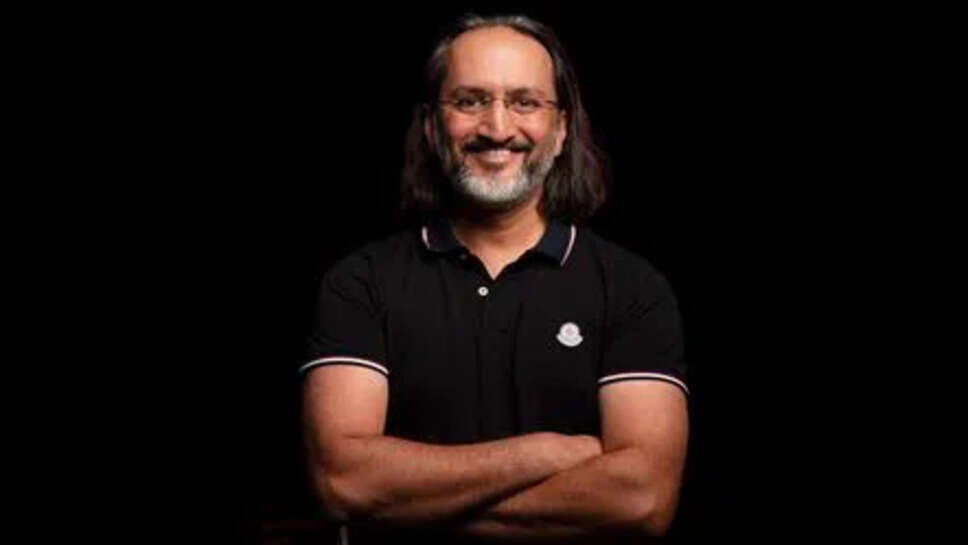Papa CJ opens up on roasts, leadership coaching, and India’s comedy evolution

In an industry often accused of pushing the boundaries of decency, Papa CJ—one of India’s most respected stand-up comedians—has a refreshing take. “If there’s anyone to blame for vulgarity in comedy,” he says, “it’s not the comedian—it’s the audience.”
That one line captures the tone of CJ’s career: unapologetically honest, rooted in observation, and often turning the spotlight back on those doing the judging. With nearly two decades in the comedy world, an Oxford education behind him, and an evolving role as a leadership coach, Papa CJ has walked an unconventional path that blends entertainment with introspection.
The Changing Tone of Comedy in India
India’s comedy scene has undergone a revolution in the last ten years. What was once limited to mimicry acts or scripted television comedy is now a thriving subculture of stand-up specials, open mics, and digital shows. Yet, with this newfound freedom has also come criticism—about language, vulgarity, and content boundaries.
Papa CJ, known for his global experience and clean humour, says the conversation around vulgarity is often misdirected. “People only give energy to what they enjoy. If a crowd rewards cheap jokes, those are what rise to the top,” he explains.
According to him, vulgarity in comedy is not a function of artistic laziness but market demand. “You can’t clap for toilet humour and then ask why the scene smells funny,” he quips.
Roasts: Humour or Hostility?
One particularly controversial form of comedy in India has been the roast format, often criticised for being aggressive, crude, and disrespectful. Papa CJ doesn’t entirely dismiss the roast as a genre—but he believes context matters.
“Roasts can be smart, clever, and brutal without being filthy. But in India, we imported the concept without understanding the culture behind it. We thought insults equal humour,” he says.
According to him, roasting works best when it’s layered with wit and not just shock value. “You can roast someone you respect. It’s not about being nasty—it’s about knowing the difference between hurting and hitting the funny bone.”
He believes many Indian comics use vulgarity as a shortcut to laughs, but the audience holds the real power. “Don’t just laugh because it’s loud or offensive. Laugh because it’s clever.”
From Stage to Boardroom: The Coach Emerges
Beyond the laughter and spotlight, CJ has found a new stage: corporate coaching and leadership training. With clients from multinational companies to Ivy League institutions, he now straddles two worlds that seem miles apart.
But for him, they’re closely connected. “Comedy teaches you presence, emotional intelligence, and the ability to read a room—qualities every great leader needs,” he explains.
His leadership sessions often use storytelling, humour, and interactive elements borrowed from stand-up. “If I can make you laugh while helping you look inward, I’ve done my job. Humour disarms people—it lets the truth in.”
The transition was not a departure from comedy, but rather an evolution. “I’m not leaving comedy. I’m expanding its impact,” he says.
Authenticity in Art and Leadership
What makes Papa CJ’s journey unique is how he has carried the same principle—authenticity—through every phase. Whether on stage, writing a book, or conducting workshops, he insists on being true to himself.
“In both comedy and leadership, people can smell fake,” he says. “If you aren’t real, no one’s listening.” That belief has shaped his comedic style—thoughtful, clean, yet cutting—and his coaching style: grounded in humour, driven by emotional connection.
CJ speaks often of how vulnerability is strength. “The most powerful person in the room is the one who can laugh at himself,” he says. “That’s true whether you’re on stage or in a CEO’s chair.”
The Indian Audience: Evolving or Just Consuming?
CJ believes the Indian comedy audience is still in transition. “We’ve started consuming more content, yes, but we still don’t fully understand the craft.” He points out how global stand-up is often based on tight writing, layered jokes, and social critique, while Indian audiences sometimes confuse loudness for talent.
“We love energy. But we need to develop an ear for nuance,” he says.
Despite that, he’s optimistic. “Younger audiences are smarter. They’re hungry for intelligent humour. The market is there—it’s just not always loud.”
Dealing with Sensitivity and Censorship
Comedy in India doesn’t just battle vulgarity concerns—it also faces pushback from sensitivity watchdogs, cancel culture, and even political friction. Papa CJ navigates this space with caution and conviction.
“Freedom of speech doesn’t mean freedom from consequence,” he says. “But comedians should not be jailed for jokes. It’s a slippery slope when laughter becomes a crime.”
He adds, “Be responsible, yes—but don’t be afraid. Great comedy comes from discomfort. If you want to please everyone, become an air conditioner.”
For him, the key is to speak truth wrapped in charm. “You can call out hypocrisy. Just don’t forget to smile when you do it.”
A Vision for Comedy’s Future
So, where does Papa CJ see comedy going? “I want comedians to be more than entertainers. We can be mirror-holders, truth-tellers, even healers. Comedy should uplift while making you think.”
He sees humour as a force for good—whether it’s helping someone recover from personal trauma, sparking a conversation, or breaking social silence. “The most powerful laugh is the one that teaches.”
His advice to upcoming comics? “Don’t chase applause. Chase truth. The laughs will follow.”
Laughter With Intention
In an age where content is consumed in short reels and public outrage spreads faster than a punchline, Papa CJ offers a rare voice of clarity. He believes in comedy that’s sharp without being shallow, humour that heals, and audiences that hold the real power.
“If you want better comedy,” he says, “be a better audience.”
And with that, he leaves us not just laughing—but thinking.
